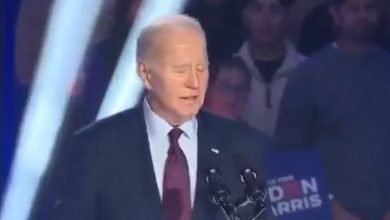Federal Judge Rules Against Latest Challenge to Trump Travel Ban
Following the Supreme Court ruling to allow portions of President Donald Trump’s sensible travel restrictions on six countries to be implemented, the left just couldn’t let it go.
Shortly after the SCOTUS had decided to let the government implement a partial ban with the intent to revisit the case in their upcoming fall term, the state of Hawaii quickly moved to obstruct the president by filing a challenge.
The Aloha State’s argument was that the renewed ban was not consistent with the high court’s ruling.
Now that challenge has been stomped on by a federal judge who recognized the SCOTUS as the final arbiters of the law of the land.
It was yet another body blow for Democrats who have made opposition to the ban a key part of their largely idea-free agenda.
Trump rules for travel ban remain after US judge denies Hawaii motion to clarify qualifying family relationships https://t.co/npbMj416wN
— AP Climate (@AP_Climate) July 7, 2017
The Associated Press reports “US judge in Hawaii leaves Trump’s travel ban rules in place”:
A federal judge in Hawaii on Thursday left Trump administration rules in place for a travel ban on citizens from six majority-Muslim countries.
U.S. District Court Judge Derrick Watson denied an emergency motion filed by Hawaii asking him to clarify what the U.S. Supreme Court meant by a “bona fide” relationship in its ruling last month.
The Supreme Court ruled the administration could mostly enforce its travel ban, but said those “with a credible claim of a bona fide relationship with a person or entity in the United States” could enter.
Watson says the relationship question would be better posed to the Supreme Court, not him.
“This court will not upset the Supreme Court’s careful balancing and ‘equitable judgment,’” Watson said in his order.
Hawaii attorney general Doug Chin objected to the administration’s omission of grandparents, aunts and uncles from its list of people meeting the definition of a close relationship.
The Trump administration has said the exemption to the ban would apply to citizens of the six countries with a parent, spouse, child, adult son or daughter, son-in-law, daughter-in-law or sibling already in the U.S.
The U.S. Department of Justice said in an emailed statement that it was pleased with the decision.
“If the plaintiffs elect to proceed, we are confident that the U.S. Supreme Court will again vindicate the President and his constitutional duty to protect the national security of the United States,” the department said.
The decision was yet another blow to the so-called Resistance which is starting to lose ground after a string of Trump victories.




